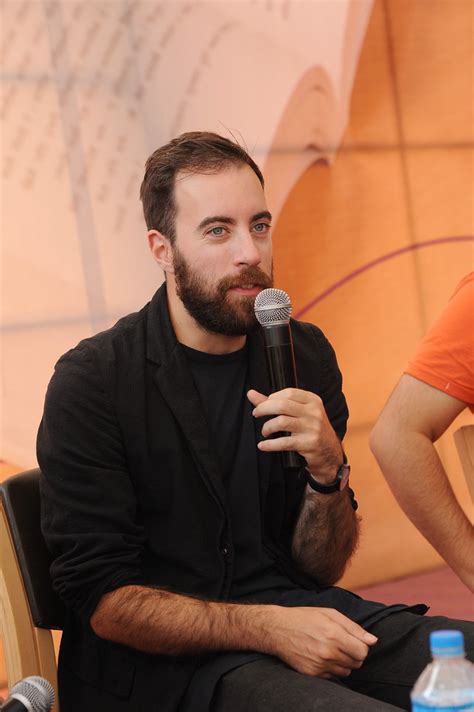A Quote by Will Self
Death, the real simile for disease - for when we are ill, do we not always feel like we are dying, even if it's only a little? - remains, despite our secularism, the most metaphoricised phenomenon of all.
Related Quotes
The first thing I would like to tell you about death is that there is no bigger lie than death. And yet, death appears to be true. It not only appears to be true but also seems like the cardinal truth of life - it appears as if the whole of life is surrounded by death. Whether we forget about it, or become oblivious to it, everywhere death remains close to us. Death is even closer to us than our own shadow.
We achieve active mastery over illness and death by delegating all responsibility for their management to physicians, and by exiling the sick and the dying to hospitals. But hospitals serve the convenience of staff not patients: we cannot be properly ill in a hospital, nor die in one decently; we can do so only among those who love and value us. The result is the institutionalized dehumanization of the ill, characteristic of our age.
"Honor never grows old, and honor rejoices the heart of age. It does so because honor is, finally, about defending those noble and worthy things that deserve defending, even if it comes at a high cost. In our time, that may mean social disapproval, public scorn, hardship, persecution, or as always, even death itself.
The question remains: What is worth defending? What is worth dying for? What is worth living for?
Worry is the most popular form of suicide. Worry impairs appetite, disturbs sleep, makes respiration irregular, spoils digestion, irritates disposition, warps character, weakens mind, stimulates disease, and saps bodily health. It is the real cause of death in thousands of instances where some other disease is named on the death certificate.
I'm an atheist, I always thought, 'This is it.' If there is going to be a heaven, it should be on earth. I feel much happier than most people. I'm fairly stoic about death, but I'm not keen on dying if it's going to be long and protracted. I don't have dark nights of the soul, except occasionally. I'm such a little busy bee.
To our real, naked selves there is not a thing on earth or in heaven worth dying for. It is only when we see ourselves as actors in a staged (and therefore unreal) performance that death loses its frightfulness and finality and becomes an act of make-believe and a theatrical gesture. It is one of the main tasks of a real leader to mask the grim reality of dying and killing by evoking in his followers the illusion that they are participating in a grandiose spectacle, a solemn or lighthearted dramatic performance.
little sun little moon little dog and a little to eat and a little to love and a little to live for in a little room filled with little mice who gnaw and dance and run while I sleep waiting for a little death in the middle of a little morning in a little city in a little state my little mother dead my little father dead in a little cemetery somewhere. I have only a little time to tell you this: watch out for little death when he comes running but like all the billions of little deaths it will finally mean nothing and everything: all your little tears burning like the dove, wasted.



































